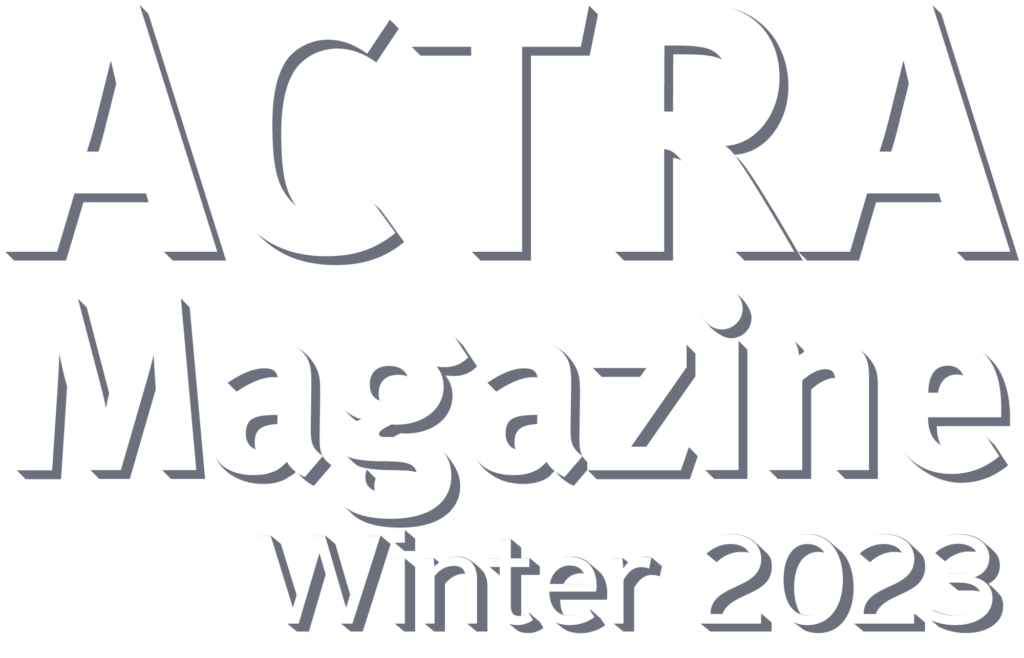
The truth behind the path: Paving the way for the next generation of BIPOC actors
By Mariah Inger
I didn’t really realize how hard this industry would be for a Black actor, until the middle of my first year at theatre school.
By 16 years old, I was in love with performing and the people in it with me. I knew it was going to be my future and my career.
I began acting at a really young age, doing community theatre, street theatre, live singing concerts and more by the time I was 10. At 13 years old, I performed a powerful piece about politics and war at Montreal’s Palais de Congrès in front of 2,000 dignitaries from around the world. By 14, I was singing with Crosby, Stills & Nash at Montreal’s Forum in front of almost 20,000 people. At school, I participated in every performance, show and reading available. By 16 years old, I was in love with performing and the people in it with me. I knew it was going to be my future and my career.
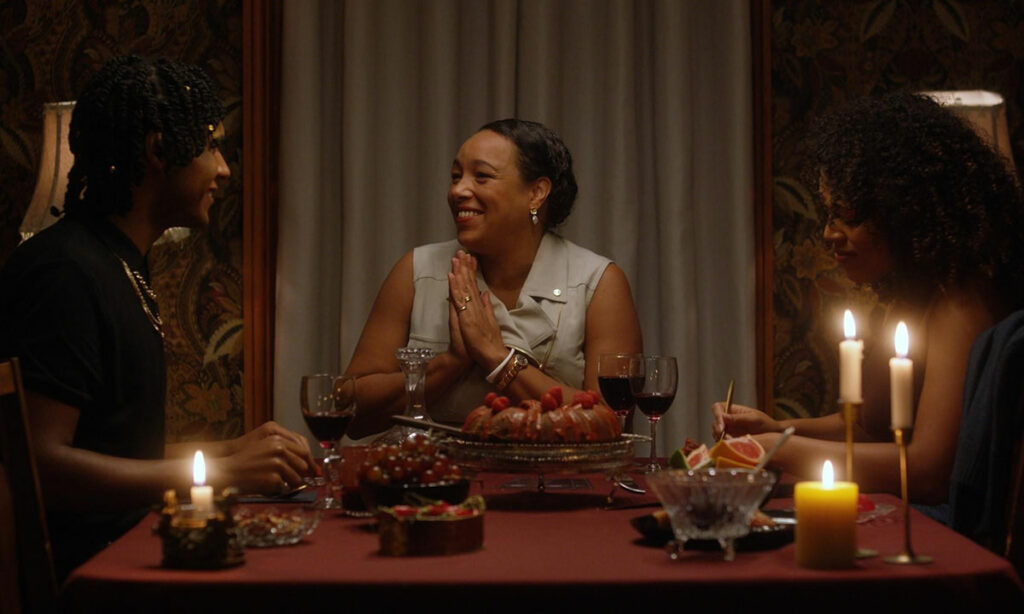
It was the first time I had seen this many Black faces in leadership teaching roles. I was so excited to be there…
I was in a sea of white in my first-year class at theatre school. Although, the three-year program did have other racialized people peppered throughout. Interestingly enough, I had multiple Black teachers. It was the first time I had seen this many Black faces in leadership teaching roles. I was so excited to be there – this was it, my future! And I was going to be taught by someone who looked like me?!
However, halfway through my first year, I felt attacked and picked on constantly, and mostly by my Black teachers.
At my mid-term advisors meeting, with my Black teacher, from New York… I asked her flat out why she, more than all the others, picked on me constantly and was never satisfied with my work. Was I not talented enough? Did she hate me? What was I doing that was so wrong?!
She sat me down and looked deep into my eyes and said, “Girl, if you can’t take it from me, you will never make it out there… you have to be better than everyone else”
She sat me down and looked deep into my eyes and said, “Girl, if you can’t take it from me, you will never make it out there. They’re going to treat you like shit, they will barely give you crumbs… all because of the colour of your skin. AND you’re a woman! If you survive me, you will have the backbone to get through this business. I think you are great, talented and funny, but you have to be better than everyone else. Or you don’t stand a chance.”
I did what she said. I took the lesson and I became one of the best.
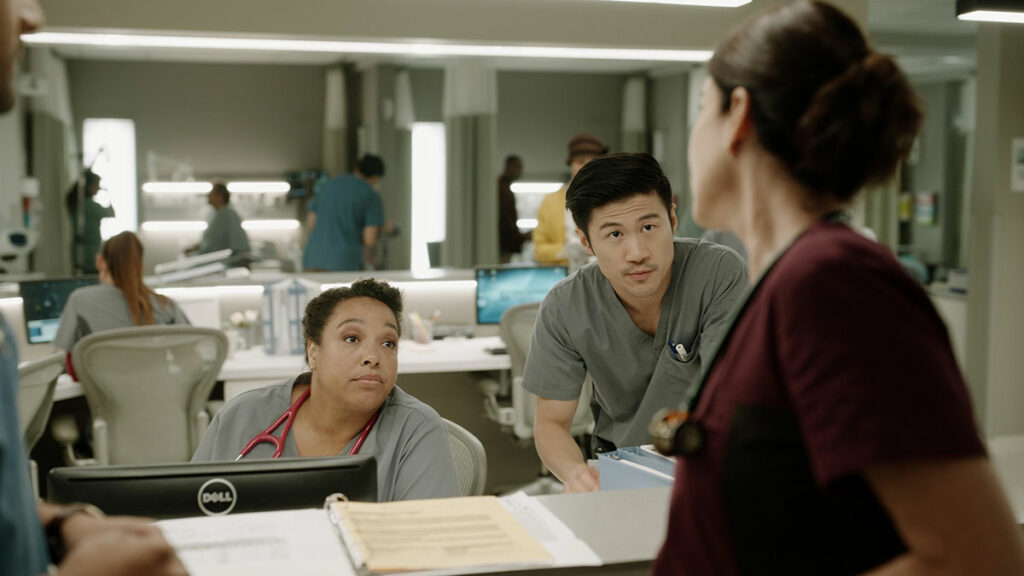
I did leads in the school productions, and even got cast in an all Black show at Centaur Theatre, while still in school. 18 years old, in an all Black cast. The picture still hangs today in the Theatre’s green room. So rare is that picture, that I can count on one hand, how many more times that has occurred in the last 30 years. My picture made it to the wall again 19 years later, and then last winter. Exactly 30 years since the first.
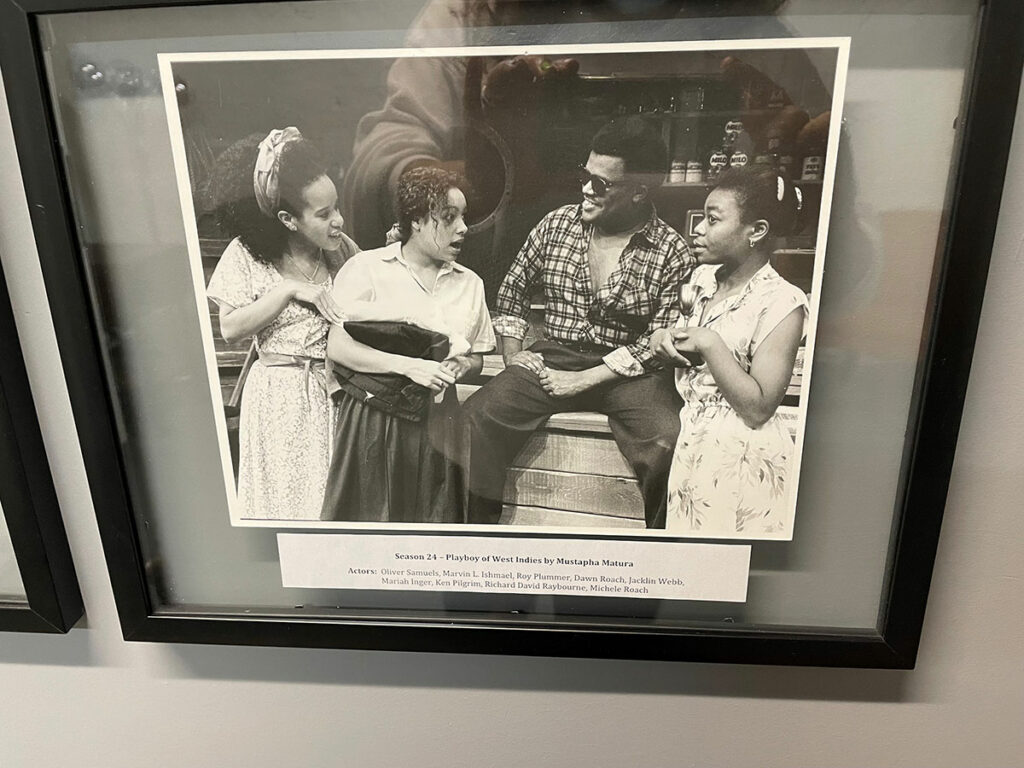
I was doing pretty well as a Black Woman in a sea of white… Then life kicked in, and by end of 2nd year of theatre school, I was a single mother.
I had already proven my talent, managed a few successes, so… this should be relatively easy for me. Right?
Now full of responsibilities and pressure to make this career work. I entered the real world with the belief I would succeed and the advice from my teachers of needing to push harder than anyone else lingering in the back of my mind. I had already proven my talent, managed a few successes, so… this should be relatively easy for me. Right?
I graduated and started auditioning right away.
I was fortunate enough to consistently book a few roles a year. It wasn’t enough to support myself and my child, but it was enough to stay in the game.
After a few years, the exhaustion of raising a child alone while working full-time, on top of offering so much energy to theatre productions, became too much. I knew there had to be a better way so I turned to the film and television industry, which promised shorter hours, more options and WAY more money.
I started booking small ‘Actor’ roles right away, and the money was great! Five years in, I was still working and the Actor roles were slowly getting a little better.
I had an Asian friend who shared my experience regularly. If he was the paramedic/doctor, then I was the cop and vice versa.
Ten years in, I graduated to Principal roles, however, I couldn’t help but feel tokenized as I was usually the only woman of colour on set. I had an Asian friend who shared my experience regularly. If he was the paramedic/doctor, then I was the cop and vice versa. This lasted for years. But I was working. That’s all that mattered. I was the lucky one, right?
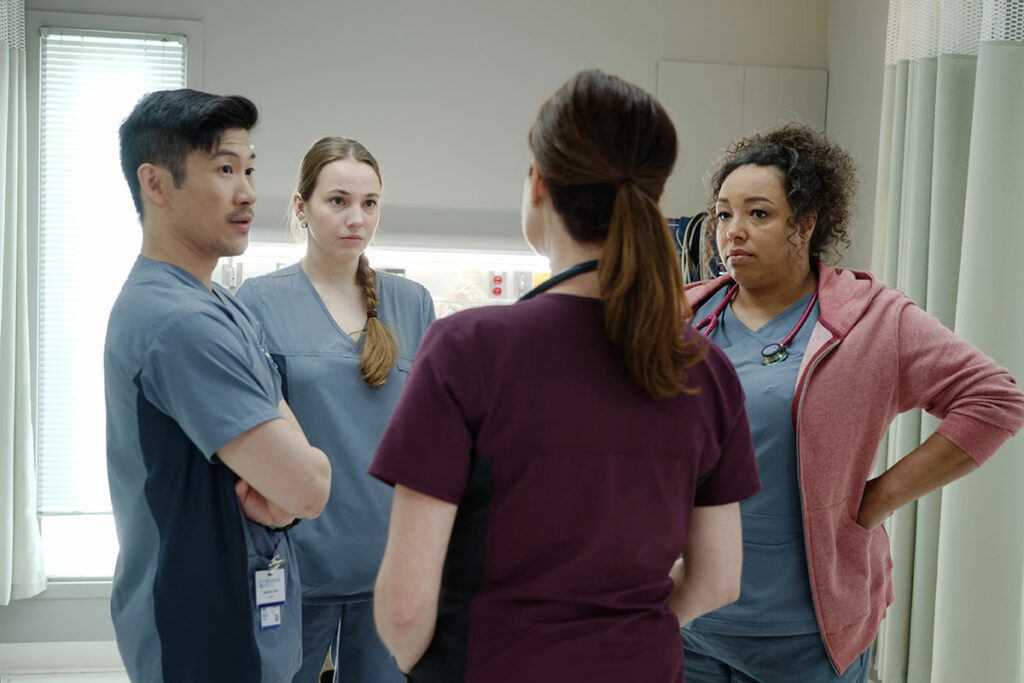
I don’t even know exactly when I noticed… when I realized that the industry didn’t see me.
I don’t even know exactly when I noticed… when I realized that the industry didn’t see me. Didn’t reward me for my constant hard work. I just know that after 15+ years in the business, I was still being offered the bottom of the barrel. I would walk onto set, playing Paramedic or Officer #1 role, yet knew everyone on crew and had more projects on my resume then the lead in the movie.
In the real world… I was a woman. I was Black. I was nothing.
I had to put value onto myself, if no one else in the industry would… But it meant, I would also have to be willing to loose. I had to start saying “No”.
So that’s what I did. For the next two-to-three years, casting directors continued to offer me the same one-dimensional roles, even going as far as telling my agent that I was putting my career at risk for turning down these so-called opportunities.
“Doesn’t she want to work? She should count herself lucky, there’s not a lot of roles for people like her.”
I stood my ground and suffered for it. The money was almost non-existent.
I stood my ground and suffered for it. The money was almost non-existent. To find ways to supplement my income and still stay connected to the industry, I began coaching actors professionally. I started with theatre actors who were transitioning into film as that had been my journey and I understood it well. Then I focused on women with children learning how to juggle careers and motherhood. And then I made the distinct decision to focus on historically marginalized communities. The unseen, the unheard, the unsupported.
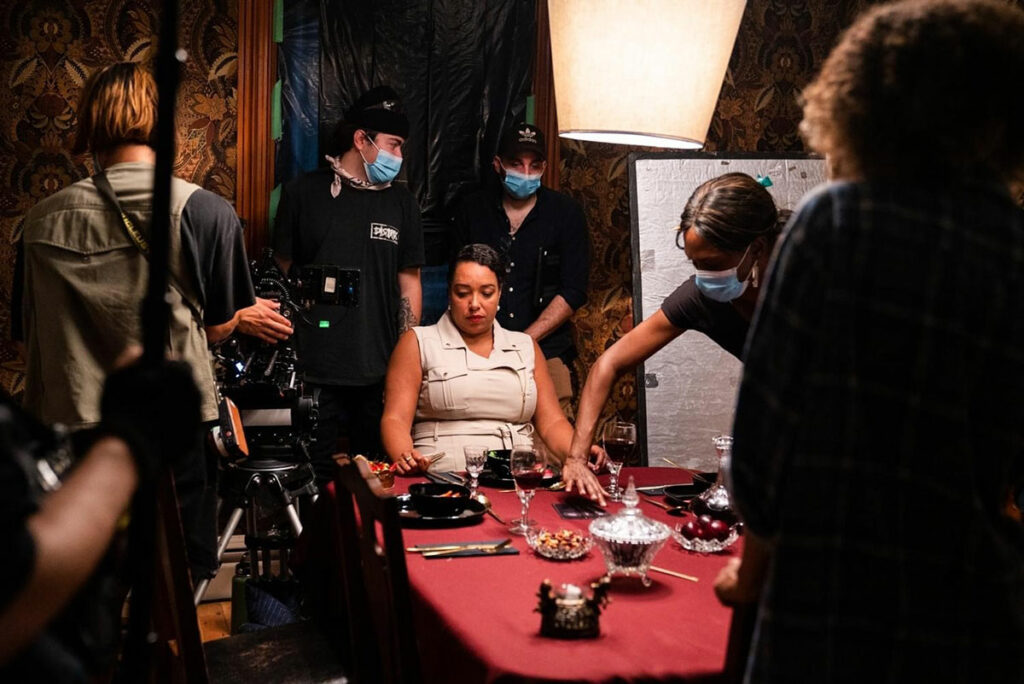
It grew from teaching acting techniques to sharing life stories, to offering support and resources, to a full-on mission!
It grew from teaching acting techniques to sharing life stories, to offering support and resources, to a full-on mission! Teaching them how to not buckle under the micro and macro aggression that we continuously survive in everyday life, never mind on primarily white driven sets, while still telling racially focused stories.
As a single mother in an industry that has consistently favoured men. As a woman of colour, demanding to be seen and respected in an industry that still to this day, favour white folks. I had to smash walls down and forced my way through multiple doors.
I had to smash walls down and forced my way through multiple doors.
But what of the younger generation? Changes made to the industry in the last 15 years, are so minimal.
And the people in power today, are the same of 25 years ago. People of power who have made little growth in comprehending the overwhelming systemic issues we face. Decades, Black, Indigenous and People of Colour (BIPOC) performers like me, fighting to be seen. (As well as most marginalized communities!) Fighting for roles that don’t tokenize us. Fighting to have on sets film crews who know lighting for all skin tones, make-up crews carrying proper shades for our skin and hair crews who know how to work with textured hair and for equal treatment and basic respect!
The quest for equitable treatment is a constant.
The quest for equitable treatment is a constant. I work closely with ACTRA, who is tackling many issues on multiple levels – including having filed a policy grievance against producers for the inequitable treatment of BIPOC members when it comes to hair and makeup services on set.
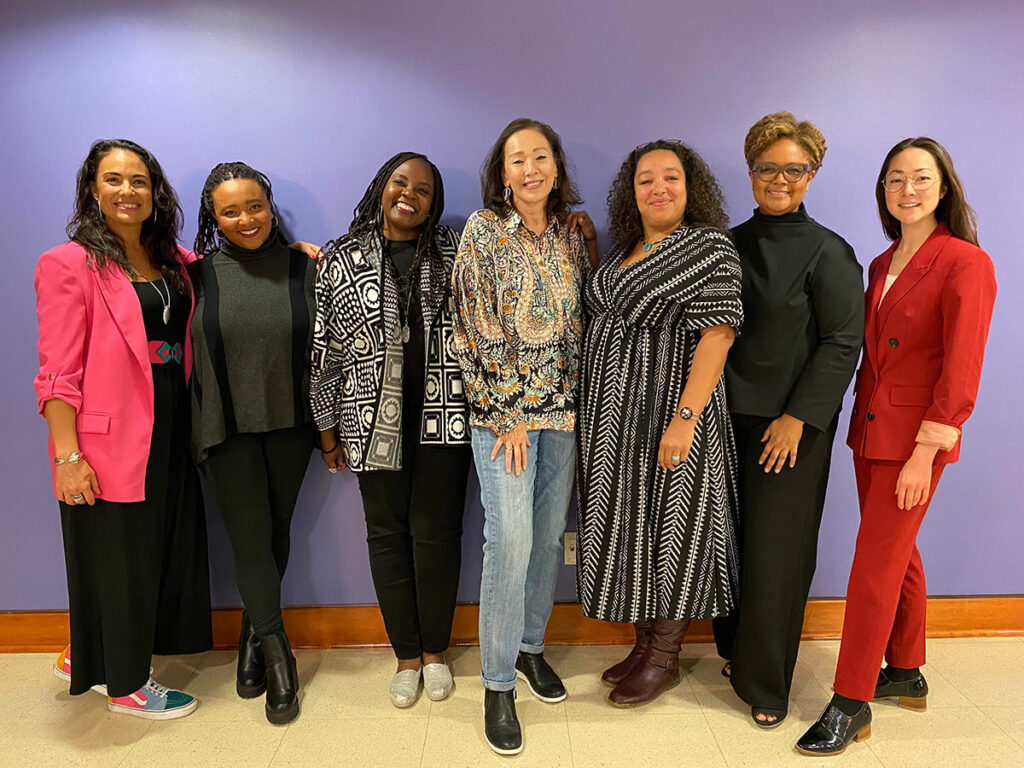
Let’s not stop now. We aren’t close, but we are moving forward!
In May 2023 there will be an arbitration. Join the fight! (To more about the actual grievance link to the Hair and Makeup page and to ACTRA’s new DEIB microsite.)
And so the fight continues…
To my fellow peers, I say, “Let’s not stop now. We aren’t close, but we are moving forward!”
To the new generation, I say, “Stand for your truths, fight to be heard! Make change, demand better for your future and the ones behind you! But also, listen and learn, for before you, there was a me.”

Mariah Inger has been an actress for over 30 years. She works in Film/TV, Voice, Radio & Theatre. She has had the chance to work with some of the industries finest, both in front and behind the camera. She is currently playing Rhoda, a recurring role on the hit series Transplant. She is also a director, script consultant, creator and Mentor. A mentor to emerging marginalized artists, a teacher at HUMBER College and Co-Program Manager of AMP, (The Artist Mentorship Program at BTW) specializing in the Mentorship of Black Artists from across the country. She is a member of multiple committees, helping to implement better diversity/ inclusion policies and practices needed throughout the industry, including current Chair of Montreal’s ACTRA-DEIB committee (Diversity, Equity, Inclusion & Belonging) and ACTRA National’s Chair of the DEIB committee.
